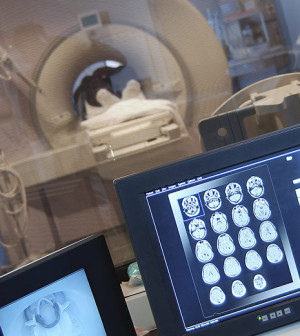- The Best Time of Day to Drink Bone Broth to Maximize Health Benefits
- 8 Ways to Increase Dopamine Naturally
- 7 Best Breads for Maintaining Stable Blood Sugar
- Gelatin vs. Collagen: Which is Best for Skin, Nails, and Joints?
- The Long-Term Effects of Daily Turmeric Supplements on Liver Health
- Could Your Grocery Store Meat Be Causing Recurring UTIs?
- Are You Making This Expensive Thermostat Error This Winter?
- Recognizing the Signs of Hypothyroidism
- 10 Strategies to Overcome Insomnia
- Could Artificial Sweeteners Be Aging the Brain Faster?
Health Highlights: April 16, 2014


Here are some of the latest health and medical news developments, compiled by the editors of HealthDay:
E-Cigarettes Caused Cancerous Changes in Lung Cells: Study
Nicotine-saturated vapor from an electronic cigarette caused cancerous changes in human lung cells similar to those trigged by tobacco smoke, according to a laboratory study published earlier this year.
However, the authors of the study presented at a January meeting of lung cancer researchers said these findings were preliminary and did not establish a link between e-cigarettes and cancer, The New York Times reported.
E-cigarettes are becoming increasingly popular in the United States and the Food and Drug Administration is considering how to regulate the devices.
The lung cells used in the study were modified to have certain genetic mutations that increase cancer risk and were placed in a liquid that had been exposed for four hours to vapor from an e-cigarette, The Times reported.
The researchers said it wasn’t clear which e-cigarette ingredients may have been responsible for the cancer-related changes in the cells.
While the findings do not prove a link between e-cigarettes and cancer, they do highlight the fact that little is known about the long term effects of e-cigarette use or the specific effects of e-cigarette ingredients, said study leader Dr. Steven Dubinett, a professor at the University of California, Los Angeles.
“There is a lot that we don’t know about e-cigarettes, and one concern is that some of the substances within e-cigarettes could contribute to negative health effects,” he told The Times.
Some experts believe that e-cigarettes are far less likely than tobacco cigarettes to cause cancer because they do not burn tobacco.
Laboratory research can be difficult to apply to people, according to Dr. Neal Benowitz, a nicotine researcher at the University of California, San Francisco.
“Isolated cell systems may respond differently than organs in a person,” he told The Times.
Copyright © 2026 HealthDay. All rights reserved.










